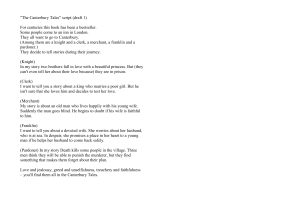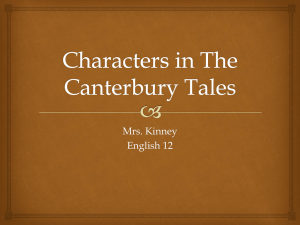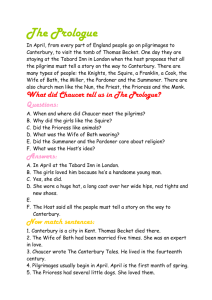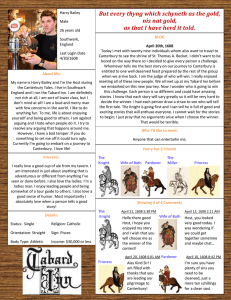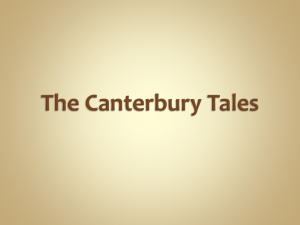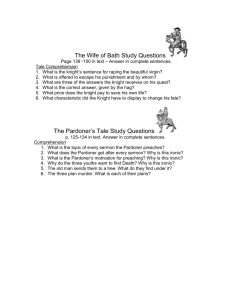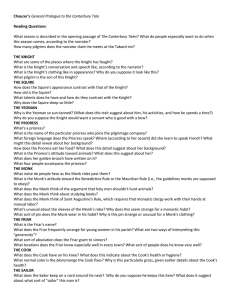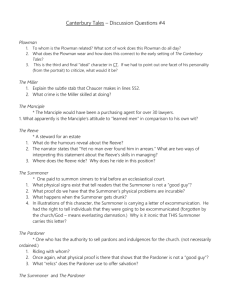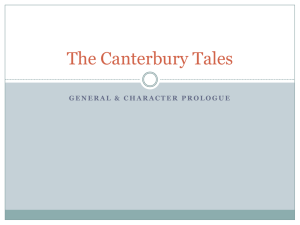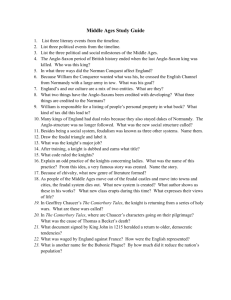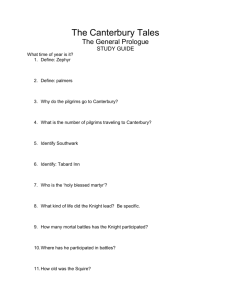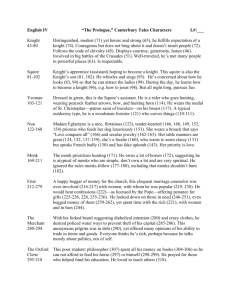canterbury characters short / Microsoft Word document
advertisement
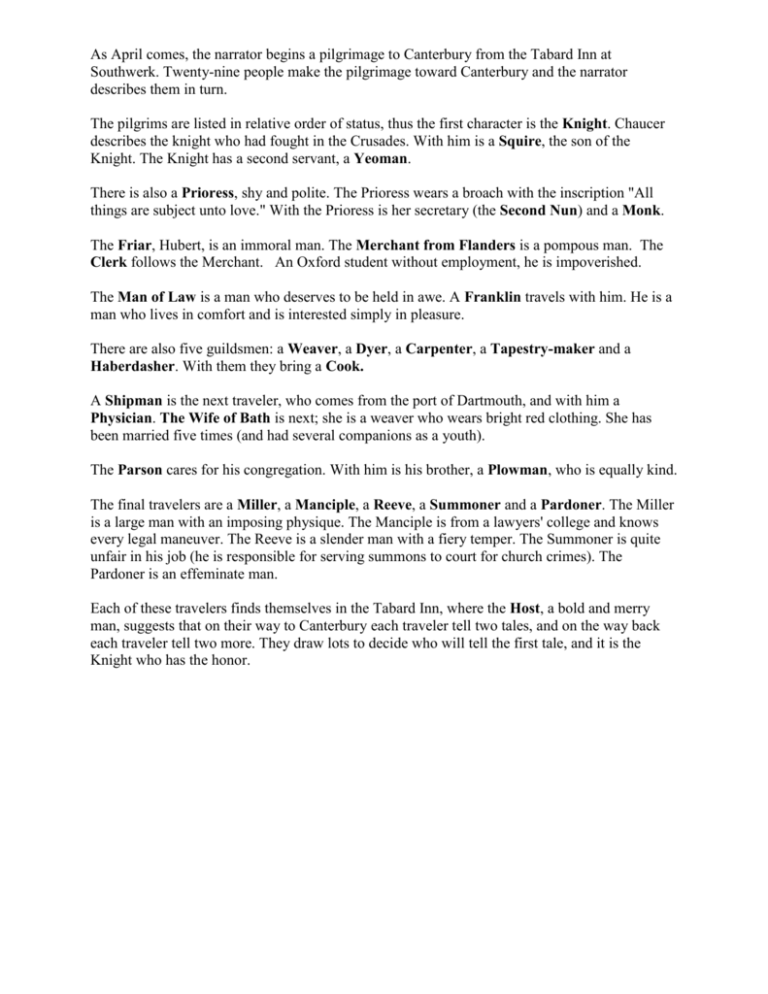
As April comes, the narrator begins a pilgrimage to Canterbury from the Tabard Inn at Southwerk. Twenty-nine people make the pilgrimage toward Canterbury and the narrator describes them in turn. The pilgrims are listed in relative order of status, thus the first character is the Knight. Chaucer describes the knight who had fought in the Crusades. With him is a Squire, the son of the Knight. The Knight has a second servant, a Yeoman. There is also a Prioress, shy and polite. The Prioress wears a broach with the inscription "All things are subject unto love." With the Prioress is her secretary (the Second Nun) and a Monk. The Friar, Hubert, is an immoral man. The Merchant from Flanders is a pompous man. The Clerk follows the Merchant. An Oxford student without employment, he is impoverished. The Man of Law is a man who deserves to be held in awe. A Franklin travels with him. He is a man who lives in comfort and is interested simply in pleasure. There are also five guildsmen: a Weaver, a Dyer, a Carpenter, a Tapestry-maker and a Haberdasher. With them they bring a Cook. A Shipman is the next traveler, who comes from the port of Dartmouth, and with him a Physician. The Wife of Bath is next; she is a weaver who wears bright red clothing. She has been married five times (and had several companions as a youth). The Parson cares for his congregation. With him is his brother, a Plowman, who is equally kind. The final travelers are a Miller, a Manciple, a Reeve, a Summoner and a Pardoner. The Miller is a large man with an imposing physique. The Manciple is from a lawyers' college and knows every legal maneuver. The Reeve is a slender man with a fiery temper. The Summoner is quite unfair in his job (he is responsible for serving summons to court for church crimes). The Pardoner is an effeminate man. Each of these travelers finds themselves in the Tabard Inn, where the Host, a bold and merry man, suggests that on their way to Canterbury each traveler tell two tales, and on the way back each traveler tell two more. They draw lots to decide who will tell the first tale, and it is the Knight who has the honor.
